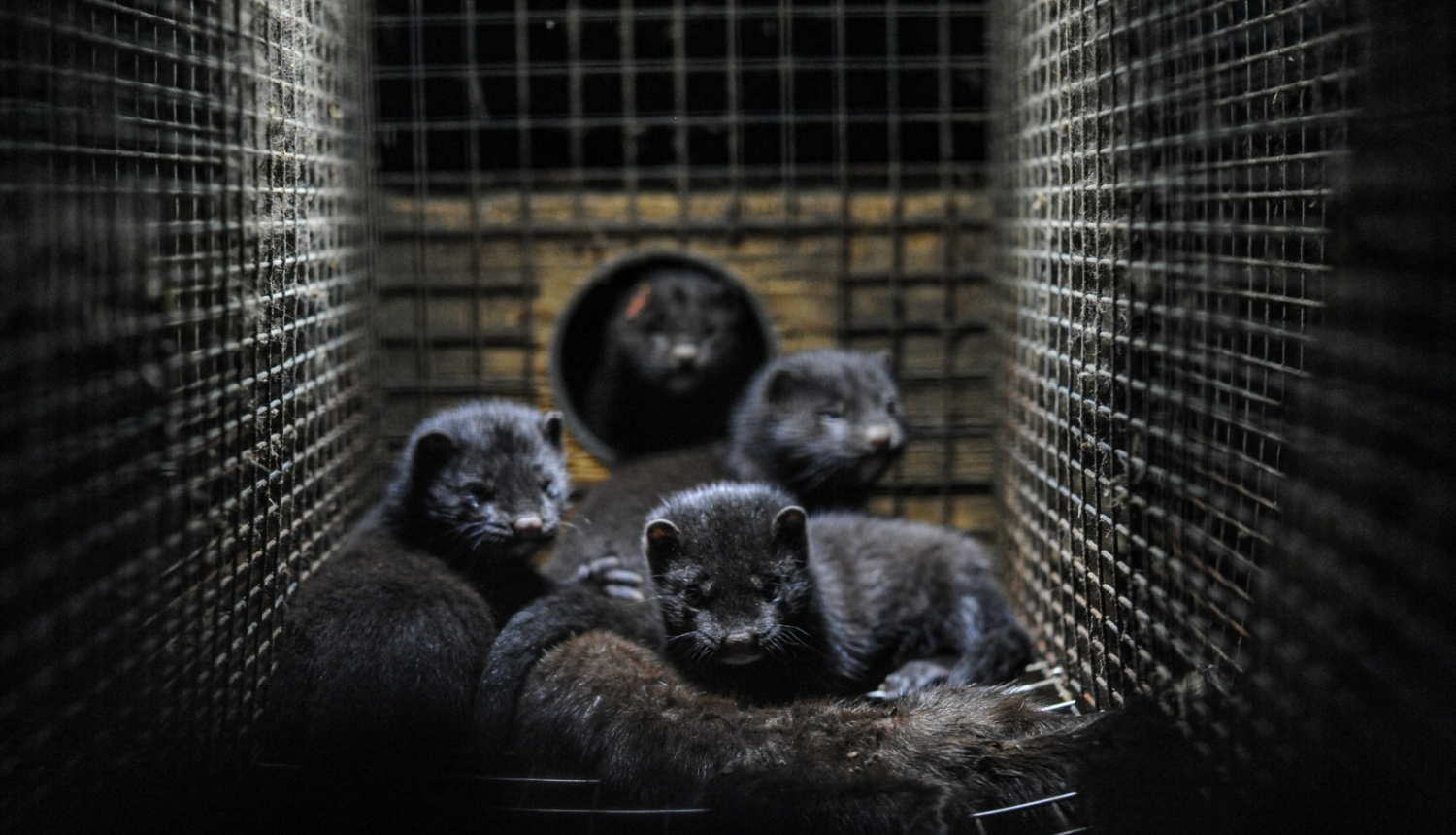Ministry of Environmental Protection and Regional Development will today express conceptual support in the Saeima's Economic, Agricultural, Environmental and Regional Policy Commission for the amendments to the Animal Protection Law, which provides for the prohibition of farming animals from 1 January 2026, where the sole or main reason for their holding and rearing is the procurement of fur.
Ministry reminds that the Animal Protection Act lays down an obligation to ensure the welfare and protection of animals of all species. No one is allowed to kill, cause pain, cause suffering or otherwise harm an animal without a justified reason.
Minister Arturs Toms Plešs (AP!): “Killing animals for fur production and the suffering caused to animals is not compatible with the demands of modern society and ethical norms. Latvia has to join the 16 European countries where fur farming is fully or partially banned. This decision goes hand in hand with the European Commission's commitment to ban all cages for livestock by 2027."
Ministry points out that a ban on holding livestock can mitigate the risks of invasive species. The ban, for example, could reduce the spread of American mink in the wild and thus reduce the risk of this species becoming invasive and slowed down the shrinkage of European mink count.
Estonia, France, the Czech Republic, Norway, Belgium, Luxembourg and Slovakia have joined the ban on fur farming in in recent years, while active public discussion on the ban is also taking place in Lithuania, Poland, Bulgaria, Ireland and other countries.
On 30 June 2021, the European Commission (EC), expressed a commitment to ban cages for livestock animals in full by 2027. The EC is currently carrying out an impact assessment planned to complete this year. The ban could affect more than 300 million laying hens, sows, calves, rabbits, geese and other farm animals annually. This framework could therefore be more extensive and not limited to fur farming.
Public Consultation on the proposal could start in early 2022. The legislative proposal will build on the scientific recommendations of the European Food Safety Authority (EFSA). The EC intends to present a legislative proposal for changes by the end of 2023 in order to gradually reduce and ban the holding of various farmed animals in cages. The EC also intends to consider imports of products from countries outside the EU in order to introduce rules or standards for imported products equivalent to those produced in the EU.
